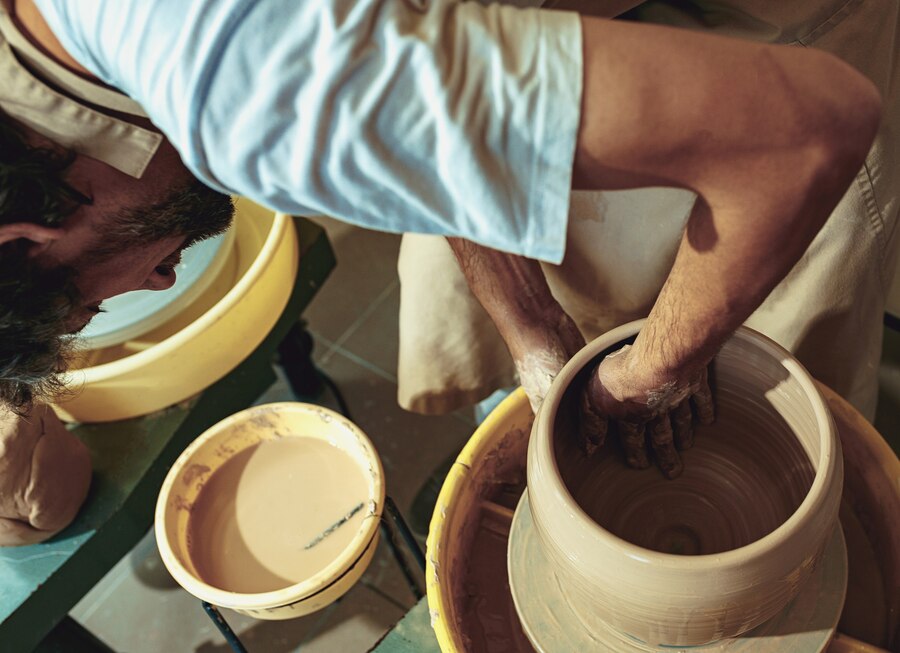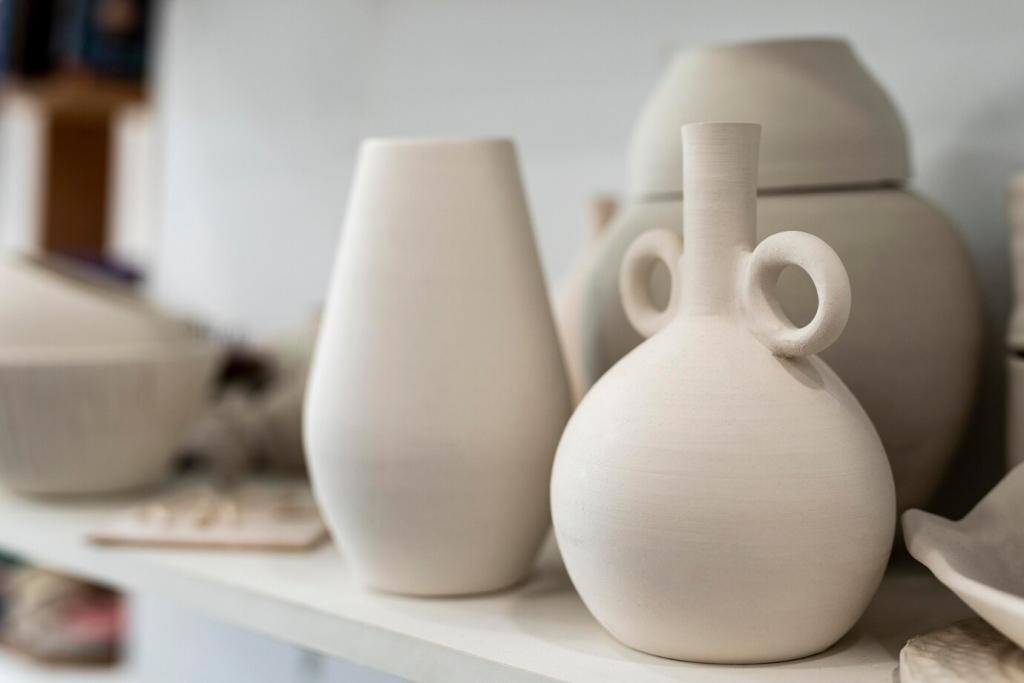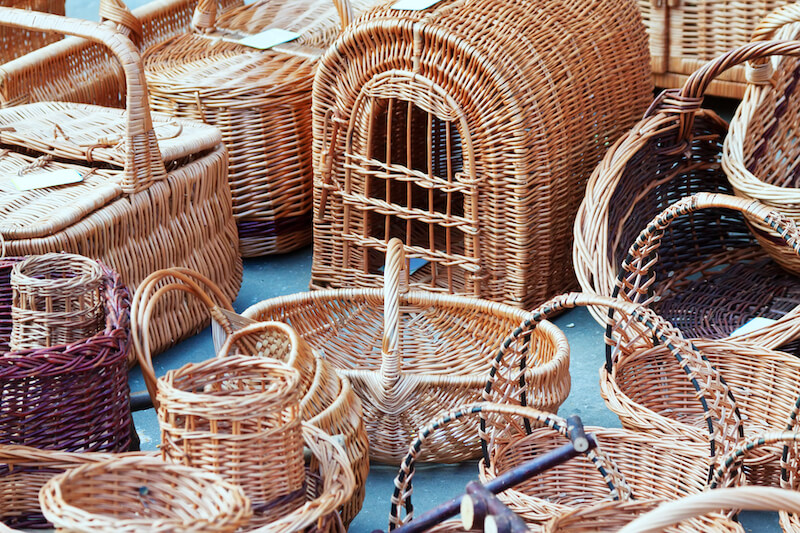When it comes to natural resources and material, the Philippines stands out globally, boasting a strategic location near the equator and surrounded by bodies of water. The topography of the country gifts its citizens not just with extraordinary beauty but a wealth of resources from the land, air, and sea.
This archipelago is abundant in various raw materials, and the combination of these natural resources with the artistic skills of locals result in outstanding handicraft and other traditional craft the country has been known for many centuries. Each region in the Philippines offers unique handicrafts, reflecting the diversity of products and cultures across the country.

Among the most cherished crafts in the Philippines is basket weaving, a practical and versatile art form influenced by deep cultural roots. Renowned for its sustainability and eco-friendly nature, basket weaving utilizes abundant local materials like rattan, with simple tools, showcasing the Filipinos’ profound connection with their natural surroundings.
Similarly, pottery, with a history dating back to the Neolithic period, remains a beloved craft. Artisans skillfully mold traditional and modern designs from the potter’s wheel, creating functional and aesthetically pleasing pieces that testify to the enduring cultural significance of pottery in the Philippines.
The country’s rich tradition also extends to arts, wood carving and sculpture, bead work, embroidery, weaving, paper mache, shell craft, metalwork for gold, silver and bronze, and leather craft. Each craft reflect the artistic mastery and cultural richness of Filipino artisans.
Let’s delve into the most popular crafts that have captured the hearts of locals and visitors alike and discover where to find them.
Traditional Handicrafts in the Philippines by Region
Northern Luzon : Pots and Jars from the Ilocos Region
The Ilocos Region, particularly Ilocos Sur, is renowned for its earthenware, known as “burnay.” Crafted from Grade A clay using techniques dating back to pre-colonial times, these pots and jars are manually molded by skilled potters using a potter’s wheel.
Originally used for storage, these sturdy jars have evolved into decorative pieces sold in European shop and markets as home decoration.

Woven fabrics from the regions of Mindanao
The southern regions, especially Mindanao, showcase impressive woven fabrics with ethnic designs and patterns. Utilizing traditional looms and interlacing threads, women artisans create functional items like vibrant fabrics and textiles for “malong,” traditionally used as a skirt but versatile enough for various purposes.
Additionally, the T’boli tribe produces unique accessories called “borloloy” featuring beads of different colors and beauty. Other accessories and jewellery are borne from these intricately designed beads and sold as souvenirs in most shops. They are sometimes incorporated as part of design in other items like bags. Visit any souvenir shop in the region to bring home a part of Mindanaoan culture.
Wood Carvings from the Cordillera and Southern Luzon regions
The Cordillera region in the northern Luzon and southern Luzon offer different types of exquisite wood carvings and sculptures. The Ifugao tribe in Cordillera creates captivating carvings of indigenous gods, wooden bowls, utensils, furniture, and other items imaginable.
In southern Luzon, skilled sculptors are known for crafting religious figures and statues, adding an artistic touch to homes.
Jewellery from Central Luzon, Southern Luzon, and Mindanao Regions
For fashion enthusiasts, the Philippines offers exquisite handcrafted jewelry. Central Luzon, particularly Bulacan, is known for gold jewelry, while Mindanao provides impressive brass amulets and accessories.
Pearls, sourced from the rich waters of Mindanao and parts of Southern Luzon, create stunning jewelry pieces.
Metal Craft from Southern Luzon and Mindanao Regions
For those seeking edgier items, the Southern Luzon region, especially Batangas, is famous for the Balisong, a local portable knife.
Mindanao produces traditional weapons made from brass, bronze, and gold. Travelers should check airline regulations before bringing these items home.
Unique Handicrafts in Visayas
In the Capiz Province, renowned for its Capiz shells based materials, discover exquisite products such as Lotus Capiz Tealight, Aqua Capiz Scallop Wall Clock, and Laminated Golden Capiz + Banana Bark Picture Frame.
Meanwhile, the City of Maasin in Western Visayas is celebrated for its abundant bamboo, offering distinctive items like Bamboo Placemats, Bamboo Wind Chime Tagiktik, and Tropical Bamboo Tote.
Each province showcases a rich artistic heritage through these locally crafted pieces, making them ideal destinations for those seeking one-of-a-kind handcrafted treasures.
Additionally, airport gift shops in cities like Cebu and Iloilo provide samples of regional handicrafts.
Best Range of Crafts in Manila

In Manila, Philippines, you can find handicrafts stores in various areas, offering a diverse range of locally crafted items. Specialty shops, malls, and tribal theme villages open to the public also offer unique handicrafts. Here are some places where you might discover handicrafts stores:
Markets and Bazaars:
Quiapo Market
Located in the historic district of Quiapo, this market is known for its variety of goods, including handicrafts and folk art, including religious figures.
Divisoria
A bustling commercial center where you can find numerous stalls selling different products from anywhere in the Philippines including handicrafts, mats, pottery, baskets, bamboo products, textiles, wood carvings and statues.
Cultural and Artisan Villages:
Intramuros
The historic walled city often hosts artisan markets and shops selling traditional Filipino crafts and arts from the different province of the Philippines.
Malls and Shopping Centers:
Greenhills Shopping Center
A popular shopping destination with a section dedicated to local products and handicrafts. It is most famous for pearl jewelry.
SM Malls
You can find stores specializing in Philippine crafts at selected Kultura Filipino branches within SM Malls.
Cultural and Tourist Centers:
Cultural Center of the Philippines (CCP) Complex
Often hosts events and exhibits where local artisans showcase their crafts and art.
National Museum Complex
The museum shops may offer handicrafts and art inspired by Filipino culture.
Artisan Markets and Fairs
Salcedo Saturday Market
Located in Makati, this weekend market features local products and handicrafts.
Legazpi Sunday Market
Another weekend market where you can explore handmade crafts.
Additionally airport gift shops in major cities like Cebu, Davao, Iloilo and other cities sell samples of the handicrafts from their regions.
Best Handicrafts in the Philippines
Artisans in the Philippines contribute to the vibrant tapestry of the country’s culture by skillfully crafting unique handicrafts that tell stories of heritage, craftsmanship, and cultural significance.
By supporting local artisans, individuals not only bring beautiful and meaningful pieces into their homes but also play a vital role in preserving traditional skills and age-old traditions.
Whether you’re a collector, a traveler seeking mementos, or someone looking to infuse your home with a touch of Filipino culture, the Philippines offers a diverse array of handicrafts waiting to be explored and appreciated. Visit any shop to bring home a piece of the Philippines.
As we explore the most popular crafts in the Philippines, it becomes evident that each craft is not just a creation but a cultural narrative woven by skilled artisans.
The adaptability, sustainability, and enduring popularity of these crafts speak volumes about the Filipino people’s creativity and commitment to preserving their heritage.
Whether you’re drawn to the practicality of basket weaving or the intricate designs of woodcarving, the Philippines invites you to immerse yourself in a world where craftsmanship is not just an art form but a way of life.

Celebrate Life’s Milestones in Camella!
Make unforgettable memories in a Camella home.
Our communities are designed to elevate your living experience.


